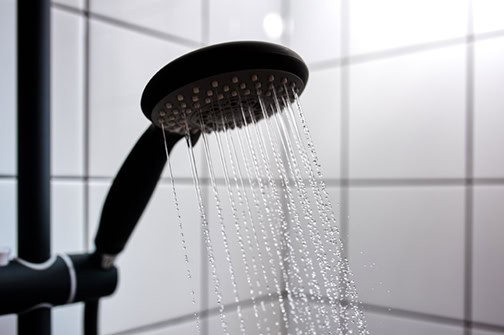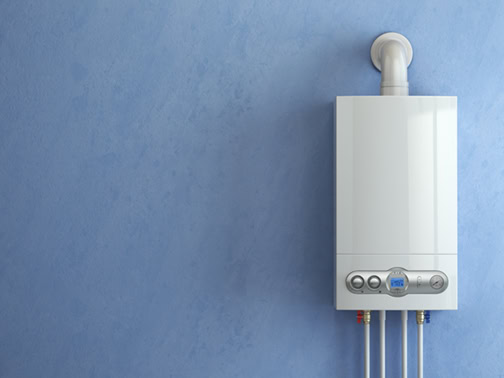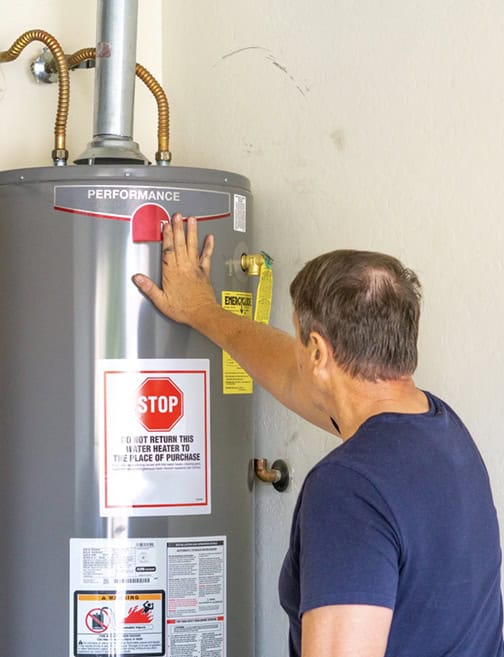Tankless Water Heaters vs. Traditional
When it comes to home comfort and efficiency, few decisions are as crucial as choosing the right water heater. As homeowners, we often take for granted the luxury of hot water at our fingertips until we’re faced with the need to replace our existing system. When that time comes, the debate between tankless water heaters and traditional models becomes a hot topic.

There are plenty of differences, advantages, and disadvantages between tankless and traditional water heaters. Quality Plumbing is here to provide a comprehensive comparison between tankless water heaters and traditional ones to help you make an informed decision that best suits your needs and budget.
When it comes to plumbing solutions, Quality Plumbing offers more than advice on whether to choose a tankless water heater or a traditional one. We provide expert water heater services, such as installation, repairs, replacements, and more. Don’t settle for cold showers; contact Quality Plumbing today for professional water heater services!
Tankless Water Heaters vs. Traditional: What to Know
When it comes to water heaters, homeowners primarily have two choices: tankless water heaters and traditional tank-style water heaters. Each type has its own set of advantages and disadvantages, making the decision process a balancing act between various factors such as energy efficiency, cost, space requirements, and hot water demand.
Selecting the appropriate water heater for your home is more than just a matter of convenience; it’s a decision that can significantly impact your energy bills, home comfort, and even your property value. With water heating accounting for about 18% of a home’s energy use, the choice between a tankless water heater and traditional models can have long-lasting effects on both your wallet and the environment.
Tankless Water Heaters vs. Traditional: Advantages & Disadvantages
So, when it comes to tankless water heaters vs. traditional, what is best for you? Let’s start with tankless water heaters.
Tankless Water Heaters

Tankless water heaters, as opposed to their traditional counterparts, which store and continuously heat a large tank of water, heat water directly as it flows through the unit. When a hot water tap is turned on, cold water travels through a pipe into the unit, where it’s heated by either a gas burner or electric elements. This process provides a constant supply of hot water without the need for a storage tank.
Tankless Water Heater Advantages
- Energy efficiency: One of the most significant benefits of tankless water heaters is their superior energy efficiency. Unlike traditional tanks that constantly heat and reheat water to maintain a set temperature, tankless systems only use energy when hot water is demanded. This on-demand heating can result in energy savings of 24% to 34% for homes that use 41 gallons or less of hot water daily.
- Space-saving design: Tankless water heaters are compact, typically about the size of a small suitcase. This space-saving design makes them ideal for homes with limited space or for those looking to reclaim valuable square footage. They can be mounted on walls, freeing up floor space in utility rooms, basements, or even closets.
- Longer lifespan: When comparing tankless water heaters vs traditional models in terms of longevity, tankless systems have a clear advantage. While traditional water heaters typically last 10-15 years, tankless units can often last 20 years or more with proper maintenance. This extended lifespan can offset the higher initial cost over time.
Disadvantages of Tankless Water Heaters
- Higher upfront cost: The primary drawback of tankless water heaters is their higher initial cost. The units themselves are more expensive than traditional tanks, and installation can be more complex, especially when retrofitting a home previously equipped with a tank-style heater. However, it’s important to consider the long-term savings in energy costs and the extended lifespan when evaluating the overall value.
- Potential for inconsistent water temperature: In some cases, tankless water heaters may struggle to provide consistent water temperature when multiple hot water outlets are used simultaneously. This “cold water sandwich” effect can occur when the demand for hot water exceeds the heater’s capacity to heat water instantly.
Traditional Water Heaters

Traditional water heaters consist of a large insulated tank that stores and heats water continuously. Cold water enters the bottom of the tank and is heated by either gas burners or electric elements. The hot water rises to the top of the tank and is distributed throughout the home when needed. These systems maintain a constant supply of hot water, ready for use at any time.
Advantages of Traditional Water Heaters
- Lower initial cost: One of the main advantages of traditional water heaters is their lower upfront cost. Both the units and installation are generally less expensive compared to tankless systems, making them an attractive option for budget-conscious homeowners or those not planning to stay in their homes long-term.
- Simpler installation: Installing a traditional water heater is typically a straightforward process, especially when replacing an existing tank-style unit. This simplicity can result in lower installation costs and quicker turnaround times.
- Consistent hot water supply: Traditional water heaters provide a reliable and consistent supply of hot water as long as the tank capacity is sufficient for the household’s needs. This consistency can be particularly beneficial for larger families or homes with high hot water demand.
Traditional Water Heater Disadvantages
- Higher energy consumption: The primary drawback of traditional water heaters is their higher energy consumption. These units continuously heat and reheat water to maintain a set temperature, even when hot water isn’t being used. This standby heat loss can result in significant energy waste over time.
- Limited hot water capacity: Traditional water heaters have a finite capacity, typically ranging from 30 to 80 gallons. Once this hot water is depleted, it takes time for the tank to reheat, which can lead to inconvenient wait times during periods of high demand.
- Shorter lifespan: Compared to tankless water heaters, traditional models have a shorter average lifespan of 10-15 years. This shorter life expectancy means more frequent replacements, which can add to long-term costs.
Tankless water heaters offer superior energy efficiency, potentially saving 24-34% on energy costs for homes with moderate water usage. They also have a longer lifespan of 20+ years and save space with their compact design. However, they come with a higher upfront cost and may require more frequent maintenance.
Traditional water heaters, on the other hand, have lower initial costs and provide a consistent hot water supply but consume more energy, have limited capacity, and have a shorter lifespan of 10-15 years. They also require more space. The choice between the two depends on factors such as household size, budget, available space, and energy efficiency goals.

Contact Quality Plumbing for Expert Water Heater Services
When it comes to making the right choice between a tankless water heater and a traditional model, expert guidance can make all the difference. At Quality Plumbing, we’re equipped to handle all your water heater needs, from initial consultation and installation to ongoing maintenance and repairs.
Don’t let the tankless water heater vs. traditional debate overwhelm you. With the right information and expert guidance, you can make a choice that perfectly aligns with your needs and budget.Reach out to Quality Plumbing today, and let us help you take the first step towards more efficient, reliable hot water in your home.

